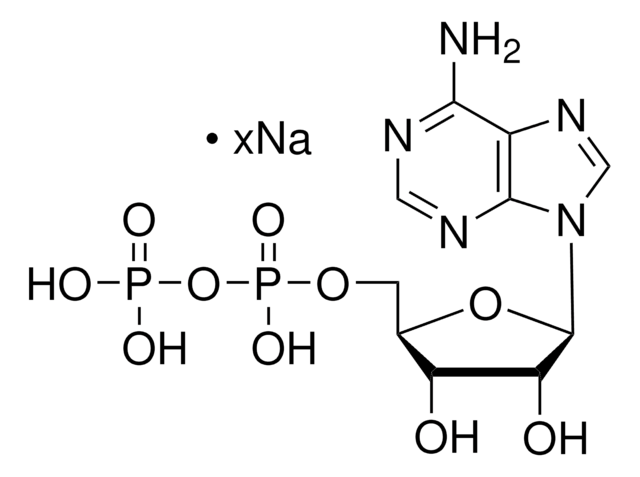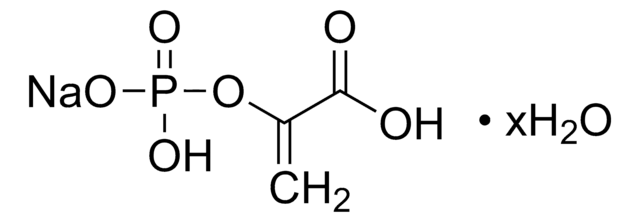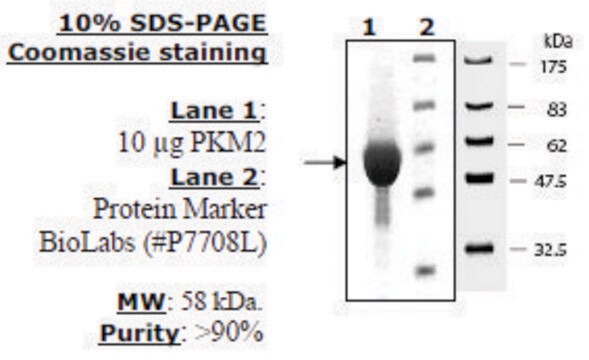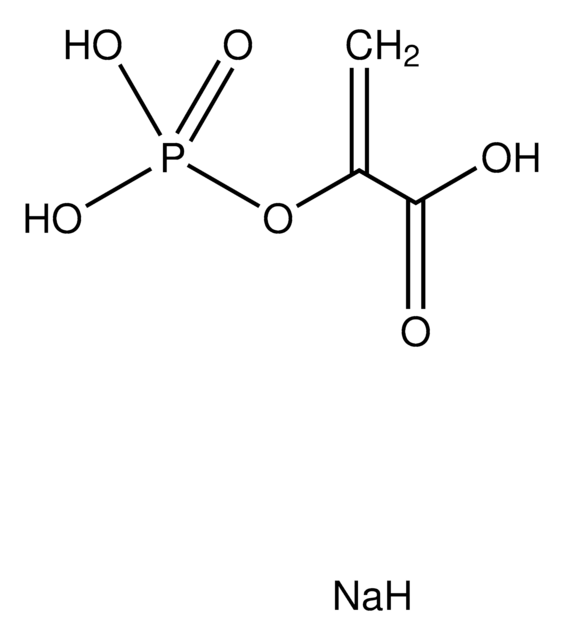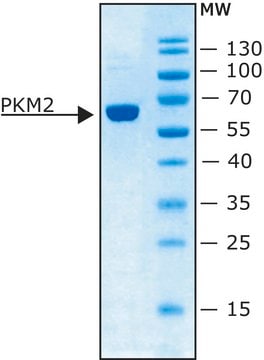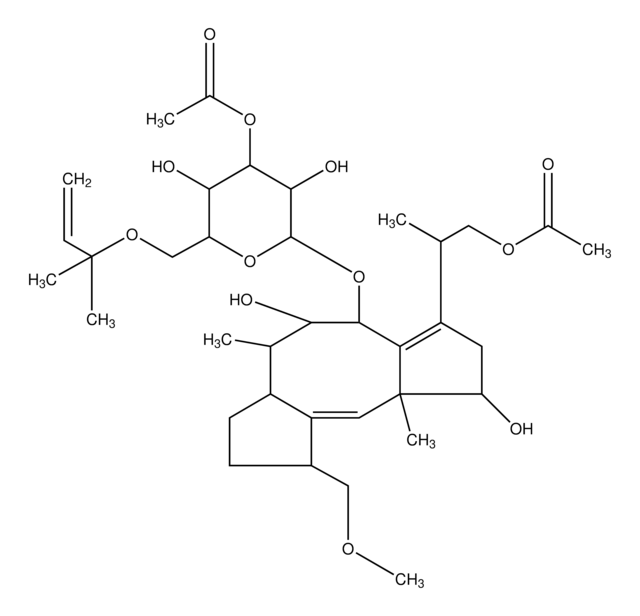P1506
Pyruvate Kinase from rabbit muscle
Type II, ammonium sulfate suspension, 350-600 units/mg protein
Synonym(s):
ATP:pyruvate 2-O-phosphotransferase, PK
About This Item
Recommended Products
biological source
rabbit muscle
Quality Level
type
Type II
form
ammonium sulfate suspension
specific activity
350-600 units/mg protein
mol wt
237 kDa
storage condition
(Tightly closed)
technique(s)
ligand binding assay: suitable
color
white
foreign activity
lactic dehydrogenase, creatine phosphokinase, and myokinase ≤0.01%
phosphoglucomutase ≤0.05%
storage temp.
2-8°C
Looking for similar products? Visit Product Comparison Guide
General description
Pyruvate kinase from rabbit muscle catalyzes ATP-dependent phosphorylation of glycolate to yield 2-phosphoglycolate.Pyruvate kinase, an enzyme, is found in a tetrameric or a dimeric form. PKM1, PKM2, PKR, and PKL are the four mammalian pyruvate kinase isoforms.
Application
- a structural study to understand the reaction mechanism of the final step in glycolysis.
- a study to investigate ATP-dependent phosphorylation of α-substituted carboxylic acids.
- enzyme assays.
Biochem/physiol Actions
Isoelectric Point: 7.6
Optimal pH: ∼7.5
Optimal Temperature: 25°C
ΕA280 = 0.54 for 1 mg(p)/ml, 1 cm path
Reported KM values are ATP (0.86 mM), pyruvate (10 mM), ADP (0.3 mM), and PEP (0.07 mM) in Tris buffer at pH 7.4 and 30 °C. Pyruvate kinase is highly specific for phosphoenolpyruvate, but can utilize other dinucleotide triphosphates as substrates in place of ATP including GTP, ITP, dATP, UTP, and CTP.
Unit Definition
Physical form
Analysis Note
antibody
enzyme
related product
substrate
Storage Class Code
12 - Non Combustible Liquids
WGK
WGK 2
Flash Point(F)
Not applicable
Flash Point(C)
Not applicable
Choose from one of the most recent versions:
Already Own This Product?
Find documentation for the products that you have recently purchased in the Document Library.
Customers Also Viewed
Articles
Instructions for working with enzymes supplied as ammonium sulfate suspensions
Our team of scientists has experience in all areas of research including Life Science, Material Science, Chemical Synthesis, Chromatography, Analytical and many others.
Contact Technical Service






